Have you ever wondered about the difference between being frugal and being cheap?
A frugal person and a cheap person share one pivotal trait: They both try to save money. Nothing wrong with that at all—in fact, it’s a smart way to keep yourself financially afloat, ensure you have more money for important expenditures, and build wealth for retirement.
And yet, “frugality” is a quality that some people aspirate to have, while “being cheap” has a decidedly negative connotation. So, what’s the difference? We’ll explain, and then we’ll provide a guide on what you should to to save money in a way that makes you frugal … and not cheap.
Frugal vs. Cheap: A Quick Explanation
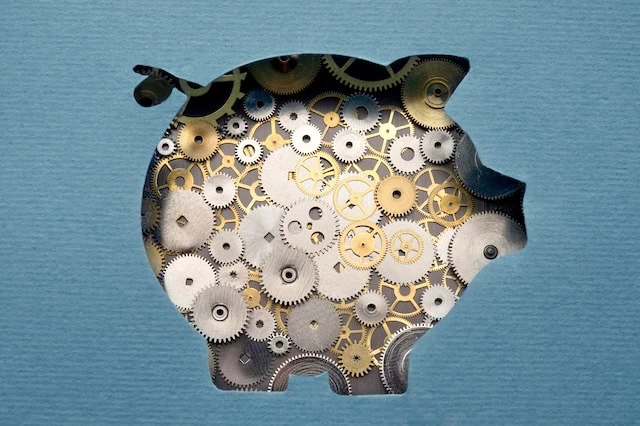
Frugality and cheapness are tied together by a strong common thread. But we largely consider them two very different routes to the same goal.
A cheap person is primarily concerned with price, and thus they never want to spend more than they have to. A frugal person is primarily concerned with value, and thus they’re not afraid to spend when doing so will reap the most value and/or when it’s a better long-term financial decision.
For instance: A cheap person would buy the cheapest mattress to spend the lowest dollar amount right now. A frugal person would consider the long view. The cheapest mattress likely wouldn’t last as long as a more expensive mattress; replacing it would be an additional cost the cheap person might not have considered. A cheap mattress could also have a negative impact on their sleep, which in turn could affect their work performance and thus their earnings potential. So the frugal person might determine that buying a moderately priced, higher-quality mattress instead would actually provide more financial benefit in the long run.
Also, because frugal people tend to consider more than price, frugality tends to affect only the person being frugal—cheapness tends to affect everyone else, too. For instance, a frugal person might ask their friends if they want to do inexpensive activities, whereas a cheap person will go along with expensive activities but frequently ask friends to cover their costs.
So, with those thoughts in mind, are you ready to veer away from cheapness and steer toward being frugal? Here are a few things you should and shouldn’t do to save money.
Cheap vs. Frugal Examples

Anyone wanting to save money should aim to be frugal, but they don’t want to overshoot and find themselves in cheap territory.
Frugality can free up space in your budget for the items and experiences that mean the most to you … without necessarily sacrificing quality in every other aspect of life. Cheapness will save you money, sure, but it could also negatively affect your health, relationships, and overall quality of life.
Let’s go over a few examples that will solidify the key differences between being cheap and frugal.
Importantly, these scenarios assume that a person is being frugal or cheap to save money but still have the means to spend if they want to. They do not refer to people who simply don’t have enough money.
Scenario #1: Expensive Event Parking

Someone gifts you concert tickets for your birthday. You get to enjoy a fun activity for free!
Well … maybe not completely free. You still need to pay for parking, which can be downright extravagant for special events. More indulgent people would simply park in the closest lot and pay a ridiculous fee, but that’s not an ideal scenario for someone on a budget.
Frugal people might choose to park at a less expensive lot that’s farther away. They would pay a lot less, and all they’d have to do is walk a few extra blocks.
Cheap people might park somewhere illegally for free. But that’s a big risk! If they were caught, they would end up paying far more money for a parking ticket or to retrieve a towed card. Alternatively, really cheap people might avoid the situation altogether by selling the tickets. Sure, they would pocket even more money, but they would miss out on what would otherwise be a still-heavily discounted experience.
Related: 10 ‘Frugal’ Habits That Aren’t Actually Saving You Money
Scenario #2: Eating Out Has Become Too Costly

Dining has started to take up more than its fair share of your monthly budget. So, you need to get your going-out-to-restaurant costs in check.
Frugal people might cut down on restaurant costs by dining out fewer times per month, trading out cocktails for nonalcoholic drinks, or being conscientious about which menu options are the best value. Those with a frugal mindset might also choose to get takeout more often instead of dining in, or only frequent locations they know haven’t excessively hiked their prices.
Cheap people might save money by not tipping at full-service restaurants, even if the service is exceptional. And really cheap people might go out with others but pretend to forget their wallets so someone else has to pay the bill.
Related: 12 Senior Discounts That Will Save You Money
Scenario #3: Your Heating Bill is Too High

Your heating bill becomes exorbitantly high during the winter. You need to find a way (or ways) to reduce your costs.
Frugal households might adjust the temperature a few degrees to be slightly cooler than their preference. To feel more comfortable, they might wear an extra layer of clothing. They also might take the time to cover their windows to reduce how much warmth escapes, and leave the oven open after cooking meals to take advantage of the heat.
Cheap households might turn the heat off or set it at a ridiculously cold temperature, even when there are other guests in their home. If they’re not careful, their water pipes might freeze, eventually creating cracks in the pipes that leak, requiring expensive repairs.
By the way, cold temperatures indoors can negatively affect a person’s mental and physical health, particularly older adults. According to the National Institute on Aging, around 20% of injuries related to cold exposure happen inside one’s home. For older adults, it’s recommended to keep the heat at least as warm as 68°F. Even temperatures between 60°F to 65°F can cause hypothermia in older adults.
Related: Want to Become More Minimalist? Start by Tossing Out These Items
Scenario #4: A Car Part Breaks
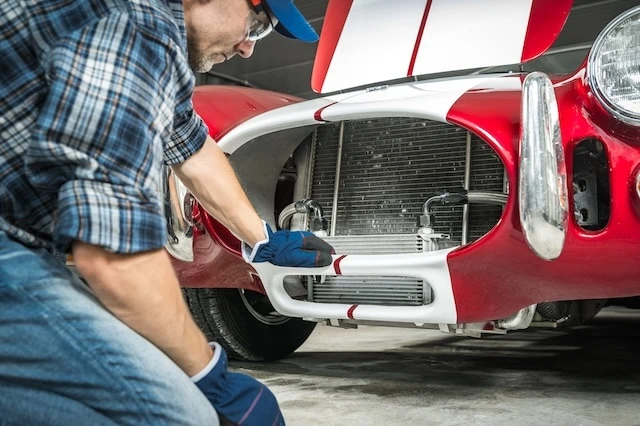
You go out and buy a used car with 50,000 miles on it. Around 60,000 miles, you notice the car is a little more sluggish than it was when you bought it. You bring it into the shop, and they mention the car could use a new PCV valve, which they’ll replace for $200.
Frugal people would ask around a couple repair shops to see if anyone would replace the valve at a better price. Alternatively, if they’re handy, they might buy the part and do the repair themselves.
Cheap people will ask if the car can still be driven, and if so, continue driving the vehicle as-is. However, doing so could result in a number of problems, including increasing the car’s oil consumption, engine misfires, reduced engine efficiency, and even severe engine damage—all of which will either increase the cost of running the car or turn into costlier repairs later.
Related: 10 Items You Should Always Buy New
Scenario #5: Gas Prices Rise
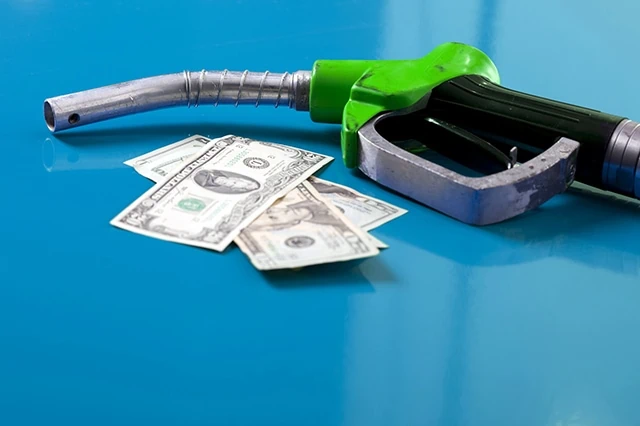
Summer’s here, and with it is the annual rise in gas prices. The price spikes much higher than normal, making enough of an impact on your budget that you need to act.
Frugal people might consider a variety of options depending on what’s available to them. Some might utilize public transportation, some might walk or bike more regularly, and some might find people to carpool with to split gas costs.
Cheap people will also carpool to avoid high gas prices, but they will avoid contributing as often as possible to shift the financial burden to other people.
Related: Appreciating Assets: 10 Best Things that Appreciate in Value
Scenario #6: Questionable Leftovers

You grab a tupperware container of leftovers from the fridge. You open it up. It’s a salmon filet from a few nights ago. You conduct a “sniff test” and the results are … inconclusive.
Frugal people are well aware of terms like “use by,” “best by,” and “expired.” They’ll still eat items past these dates when they know they’re referring to when the product has the best flavor quality, but not when the dates relate to safety. And in general, they’ll happily eat leftovers because doing so saves money … but they’ll toss out anything that’s questionable.
Cheap people will risk eating food that is well past an expiration date, items left in the heat far longer than they should, or refrigerated items that have possibly gone bad. Consuming them comes with a much higher risk that they’ll get sick, which can keep you out of work and incur various medical costs, like a doctor’s visit and medicine.
Related: Feeling Thrifty? How to Save Money at Thrift Stores?
Scenario #7: You Don’t Own Power Tools

You’re a new homeowner and haven’t built up your tool collection yet. People happy to splash their cash on new tools will go and stock up at Lowe’s, regardless of whether they even really need those tools or not. But you’ve got a budget.
Frugal people would borrow a tool if it’s something they will only need once or very infrequently. (For instance, they might borrow their neighbor’s power washer.) For tools that will be used more frequently, they might buy used at a significant discount, or carefully research quality and price before purchasing new.
Cheap people will continuously try to borrow tools at the inconvenience of others. These people might use another person’s lawnmower every week during the summer and borrow a snowblower every time it snows in the winter. They don’t repay the favor in any way.
Related: 10 Items You Should Always Buy Used
Scenario #8: Birthday Party!

It’s your daughter’s 10th birthday, and she’d like to have a party. Of course, any sort of party—birthday, holiday, you name it—can be pretty expensive once you consider you’ll need to buy decorations, food, and gifts. (Quick tip: Novice monthly budgeters often forget to plan for regular one-off expenses such as Christmas and birthdays. Remember to keep holiday spending in mind!)
Frugal people have plenty of methods for celebrating without breaking the bank. They know party decorations will only be used once, so they buy inexpensive decorations and party supplies at a dollar store to save money for a meaningful gift. Rather than having a birthday catered, they might buy the cake but cook the party food themselves. They have good ideas for other holidays, too, like doing a secret Santa on Christmas, rather than having every person buy gifts for each family member.
Cheap people will either skimp on the party to the point it’s not enjoyable, or avoid having the party altogether. They might tell their daughter she hasn’t behaved well enough or gotten good-enough grades to have a party. Or if they do throw a party, they’ll invite people and state that gifts are welcome, but only buy a small cake and no other food, put up no decorations … all while failing to use the excess savings to buy a better gift.
Related: Roth IRA for Kids: Can I Open a Custodial Roth IRA for a Child?
Scenario #9: You Need a New Pair of Shoes
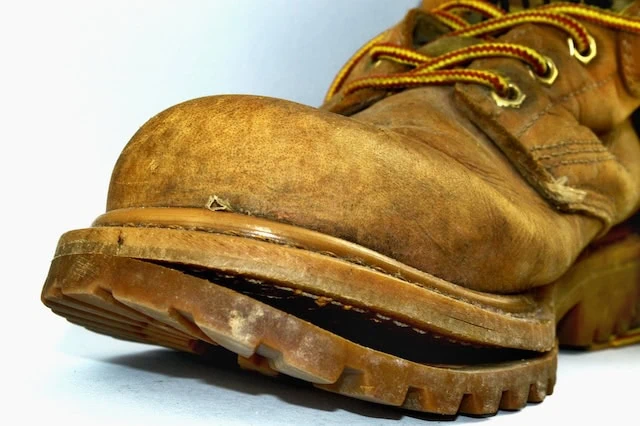
You wince. You know you felt it: a quick breeze hitting your foot. You bend your leg upward and look down at your shoe, and sure enough, it’s a blowout. It’s time to buy a new pair of shoes.
You know you felt it—that quick breeze hitting your foot.
It’s said that spending money on things that separate you from the ground is a good investment. Items like mattresses, tires, and shoes, aren’t the time to be cheap. These items can be pricey though. When your athletic shoe treads have worn smooth, what do you do?
Frugal people plan ahead. Rather than wait to buy shoes until the moment theirs are ruined, they pay attention to when their shoes are wearing out and start researching high-quality shoes that will provide good support and last them a long time. From there, they watch out for sales so they can buy the new shoes at the best price, even if they don’t need them right this second. If the deal is good enough, and they like the shoes enough, they might buy two pairs so they can avoid that expense again for years.
Cheap people always buy the cheapest shoes possible. They’re frequently low-quality shoes that quickly wear out, forcing them to replace them often—a hidden cost they don’t see. Also, by wearing poorly made shoes, they risk foot pain and other physical issues.
Related: Student Loan Interest Deduction: How Much, Eligibility + More
Scenario #10: It’s Time to Make a Health Care Decision

This scenario actually covers a range of situations. Maybe you have to decide on a health care plan. Or maybe you have frequent headaches and wonder whether you should see a doctor. But the general idea is, you have a health care decision to make—so how will you approach it?
Frugal people understand that with health care, skimping now can cause serious problems later. They carefully choose the health insurance plan that makes the most sense for themselves and their families. They choose a high-deductible health plan if they’re generally healthy, but a more comprehensive plan if they have underlying health issues or a lot of prescriptions. They use in-network doctors and pharmacies. They use generic medications whenever possible. They don’t dash to the doctor every time they have a runny nose, but if their condition feels potentially serious, they seek an opinion sooner than later.
Cheap people either buy the cheapest plan available or try to skip buying health insurance altogether. In the event they need medical intervention, it can cost astronomically more than it would have with a decent plan. They fail to take advantage of covered regular checkups and risk missing developing conditions until they become advanced and harder to treat. They often choose to self-medicate with over-the-counter options without seeking a doctor’s advice.
Related:




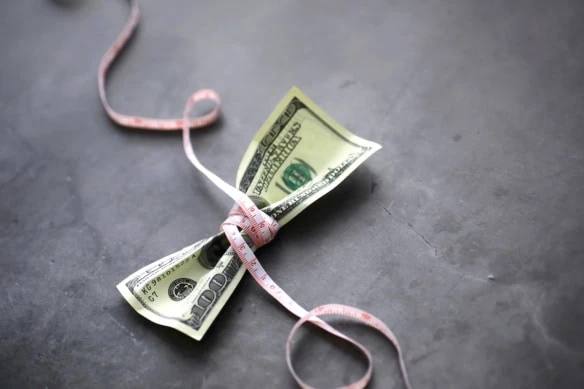

![What Is a Bare-Bones Budget [And How Do I Create One]? 27 budgeting piggy bank tight clamp bare-bones 1200](https://youngandtheinvested.com/wp-content/uploads/budgeting-piggy-bank-tight-clamp-bare-bones-1200-600x403.webp)
![What Is the 50/30/20 Budget Rule [And Is it Impractical]? 28 50 30 20 budget rule pie chart etf index 1200](https://youngandtheinvested.com/wp-content/uploads/50-30-20-budget-rule-pie-chart-etf-index-1200-600x403.webp)
